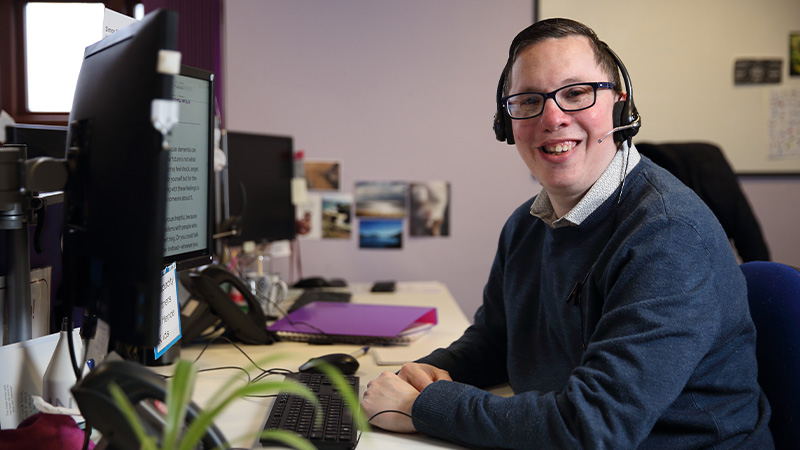Many UK hospitals and care homes have stopped or limited visits to reduce the risk of people catching coronavirus. Being unable to see loved ones face-to-face, especially after a stroke, can be very stressful and upsetting.
Simon from our Stroke Helpline has experienced this himself. 'I'm a carer for my mum, who had a stroke ten years ago,' says Simon. 'Mum was recently in hospital for several weeks and my family and I couldn't visit her, so I understand the worry and challenges that this brings.
'I've put together some information to help you to stay in touch with loved ones if visiting isn't possible.'

How can I contact family and friends in hospitals and care homes?
- Ask for the name of a staff member who can talk to you regularly. This will limit the amount of times you have to repeat information or pass data security questions.
- Send your loved one a mobile phone or a device, such as a smart tablet, so you can contact each other directly rather than going through the switchboard. Some hospitals also have schemes where they can lend patients devices so they can video call their families.
- If your loved one has communication difficulties, try two-way video apps, such as Zoom or FaceTime, so you can use gestures or visual communication tools.
- Send photos or other small home comforts to personalise their bed space. This can provide reassurance and help if they have memory problems. You can also send in books and magazines to keep them engaged.
- Write a letter or a card to let them know you're thinking of them.
When can I contact them?
Hospital wards and care homes typically follow a routine, and may be more able to help with queries, calls or using technology at quieter times. Speak to a ward manager or your main contact about the best time to call.
Your loved one may also be more alert, or willing to talk, at certain times of the day. Find out when the best time to call is by asking them directly, or talking to the staff.
What can I do if I have questions about care?
Patients and their relatives can ask for information to make sure they understand their treatment. If you have questions or concerns, you can ask to speak to the health care professionals who are looking after you or your loved one's care. You can also contact the hospital's Patient Advice and Liaison Service (PALS) for advice.
Stroke still strikes every five minutes in the UK, changing lives in an instant.
— Stroke Association (@TheStrokeAssoc) June 9, 2020
Simon from our helpline team, talks about what you can do to support a loved one if they are in hospital following a stroke.
If you need support, please call our stroke helpline on 0303 3033 100. pic.twitter.com/7IROzsaldd
Find out more
Contact our Stroke Helpline on 0303 3033 100 or helpline@stroke.org.uk.
Stroke News magazine
This article is featured in the winter 2020 edition of our magazine, Stroke News. Subscribe to our future editions available in print, on audio CD, or via email.
